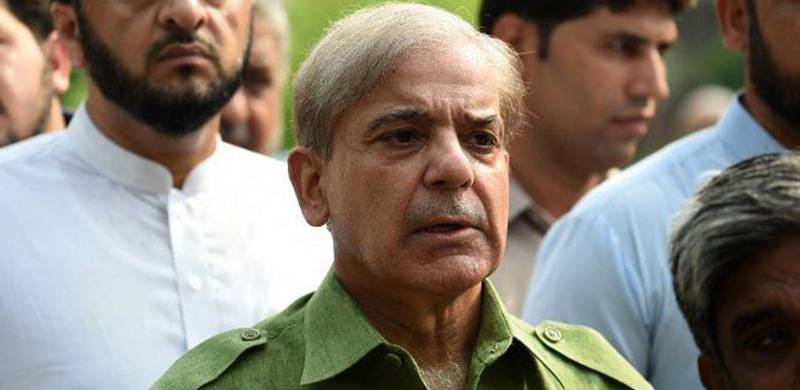
Sometimes candid admissions by leaders can expose dysfunctionality of the country's political system. This is what happened on May 21, 2022, when Prime Minister Shehbaz Sharif reportedly said, “If the Pakistan Muslim League-Nawaz (PML-N) government had received 30 percent of the support given to former Prime Minister Imran Khan by the establishment, the country would have progressed very swiftly”. The PM was addressing the media after meeting a group of traders and industrialists in Karachi.
The statement that went largely unnoticed exposes our farcical political system. What exactly was the prime minister implying? Is he desirous of the same kind of support as Imran Khan? Does the “establishment” enchant him?
In our political jargon, ‘establishment’ generally refers to the military top brass — in general a clique of army generals who command the land forces of the country, and in particular the COAS and Director General of Inter-Services Intelligence.
In the past five years, Pakistan has had one person occupying the office of COAS, whereas the second one is occupying the office of DG ISI. The media is careful in reporting about army generals. The last time the media reported about the retired and serving army generals liberally was during General Musharraf’s military government. However since the restoration of parliamentary democracy in the country only two generals have come to represent the face of the establishment. The media reports on them in a set pattern that indicates their official line is apolitical.
But Prime Minister Shehbaz Sharif’s statement exposes something more. He is perhaps alluding to the establishment’s support to its ‘blue eyed’ – and that he is not one of them. He is suggesting an authority over and above the legal and constitutional position he holds as the prime minister of Pakistan.
The hard truth is that the extra authority exercised by this clique of generals has to be the state property. It cannot possess power independent of the state of Pakistan, and it cannot deny power to the country’s executive -- because that power is not its institutional belonging. Power rests with the chief executive of the country that he or she exercises with assistance from the state functionaries.
The fact that Prime Minister Shahbaz Sharif is behaving like a supplicant before the establishment and doesn’t claim his executive authority fully to carry out functions of the state shows a lack of legitimacy and acceptance of his office by the state functionaries. But, what can be more farcical than a major political force of the country refusing to accept his legitimate authority? He is leaving the field open for the government servants to deny him the power he constitutionally possesses.
In the post-Musharraf period, every elected government has been weakened by the opposition and government servants, and them questioning the legitimacy of the executive under some pretext. As a result the powerful government servants have come to act as arbitrators in political disputes.
Unfortunately, PM Shehbaz Sharif will not be the last chief executive to behave like a supplicant. The next one will be as helpless.
The statement that went largely unnoticed exposes our farcical political system. What exactly was the prime minister implying? Is he desirous of the same kind of support as Imran Khan? Does the “establishment” enchant him?
In our political jargon, ‘establishment’ generally refers to the military top brass — in general a clique of army generals who command the land forces of the country, and in particular the COAS and Director General of Inter-Services Intelligence.
In the past five years, Pakistan has had one person occupying the office of COAS, whereas the second one is occupying the office of DG ISI. The media is careful in reporting about army generals. The last time the media reported about the retired and serving army generals liberally was during General Musharraf’s military government. However since the restoration of parliamentary democracy in the country only two generals have come to represent the face of the establishment. The media reports on them in a set pattern that indicates their official line is apolitical.
The statement that went largely unnoticed exposes our farcical political system. What exactly was the prime minister implying? Is he desirous of the same kind of support as Imran Khan? Does the “establishment” enchant him?
But Prime Minister Shehbaz Sharif’s statement exposes something more. He is perhaps alluding to the establishment’s support to its ‘blue eyed’ – and that he is not one of them. He is suggesting an authority over and above the legal and constitutional position he holds as the prime minister of Pakistan.
The hard truth is that the extra authority exercised by this clique of generals has to be the state property. It cannot possess power independent of the state of Pakistan, and it cannot deny power to the country’s executive -- because that power is not its institutional belonging. Power rests with the chief executive of the country that he or she exercises with assistance from the state functionaries.
The fact that Prime Minister Shahbaz Sharif is behaving like a supplicant before the establishment and doesn’t claim his executive authority fully to carry out functions of the state shows a lack of legitimacy and acceptance of his office by the state functionaries. But, what can be more farcical than a major political force of the country refusing to accept his legitimate authority? He is leaving the field open for the government servants to deny him the power he constitutionally possesses.
In the post-Musharraf period, every elected government has been weakened by the opposition and government servants, and them questioning the legitimacy of the executive under some pretext. As a result the powerful government servants have come to act as arbitrators in political disputes.
Unfortunately, PM Shehbaz Sharif will not be the last chief executive to behave like a supplicant. The next one will be as helpless.

